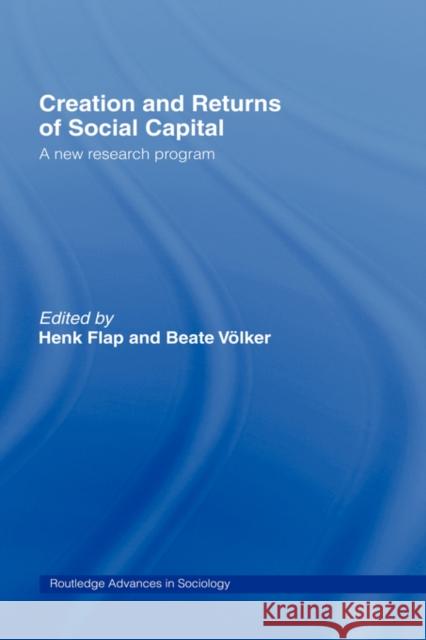Creation and Returns of Social Capital » książka
Creation and Returns of Social Capital
ISBN-13: 9780415300599 / Angielski / Twarda / 2003 / 304 str.
Creation and Returns of Social Capital
ISBN-13: 9780415300599 / Angielski / Twarda / 2003 / 304 str.
(netto: 676,35 VAT: 5%)
Najniższa cena z 30 dni: 654,86
ok. 22 dni roboczych.
Darmowa dostawa!
An important new contribution to the social sciences is the idea of social capital. Social capital consists of the resources that are embedded within people's social networks. Validated by empirical research, this book presents social capital research as an integrated theoretical research programme. The programme consists of two hypotheses. The social capital hypothesis holds that those with better social capital are better able to realise their ends. And according to the investment hypothesis people invest in ties to the degree that these are instrumental in achieving their ends. The volume is organised into six sections, each addressing a fundamental issue in the research programme. Firstly, the research programme is described. The second section presents the distribution of social capital among citizens of different societies using large-scale social surveys. In the third section experimental and simulation studies show how social capital is created. The fourth section analyses various returns of social capital such as educational and occupational attainment and performance at work. The fifth issue is how social capital should be measured in a more standardised way. And finally











